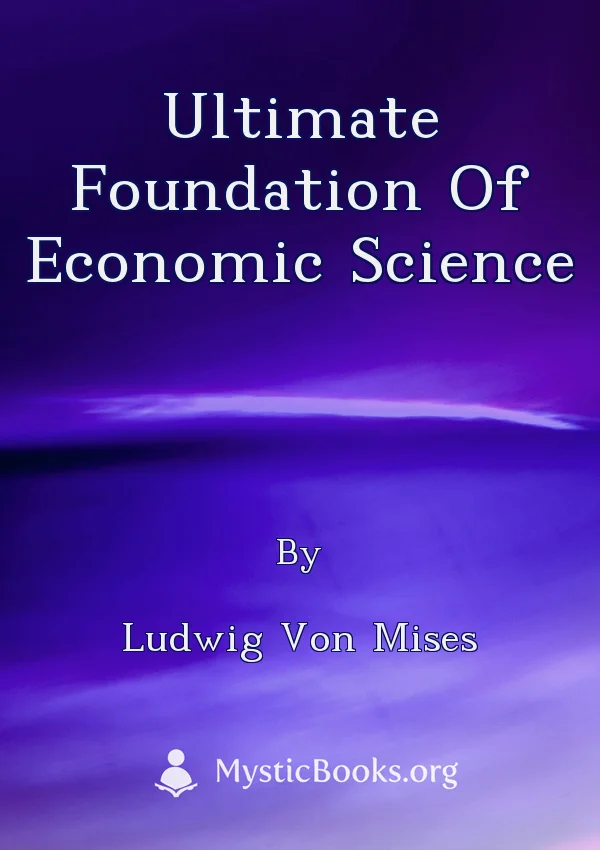
Ultimate Foundation of Economic Science
'Ultimate Foundation of Economic Science' Summary
In "Ultimate Foundation of Economic Science," Ludwig von Mises sets out to establish a rigorous and objective foundation for economic science. He argues that economics must be based on the study of human action, which he terms praxeology. Mises asserts that human action is driven by purposeful behavior aimed at achieving desired ends. He then uses this foundation to develop a critique of mainstream economic methods, which he sees as relying too heavily on empirical observation and statistical analysis. Mises instead advocates for a more deductive approach, starting from the fundamental axioms of human action and deriving logical implications. He addresses key concepts like economic calculation, demonstrating that socialist systems cannot effectively allocate resources without a free market and price system. Mises also explores the role of money in a free market economy, analyzing its emergence and functions. Throughout the book, he critiques government intervention, arguing that it distorts the market and ultimately leads to economic inefficiency and instability. He emphasizes the importance of free markets and individual liberty for economic prosperity and social progress.Book Details
Language
EnglishOriginal Language
Published In
Download eBooks
Listen/Download Audiobook
Unfortunately, no Audiobooks/Narrations exist for this book, yet...
Related books

Bars and Shadows: The Prison Poems of Ralph Chaplin by Ralph Chaplin
This book is a collection of prison poems written by Ralph Chaplin, a prominent member of the Industrial Workers of the World who was imprisoned under...

Proposed Roads to Freedom by Bertrand Russell
Bertrand Russell, 3rd Earl Russell (1872 – 1970) was a British philosopher, logician, mathematician, political activist and Nobel laureate. He led the...

Pale Woman by Sara Bard Field
Pale Woman is a collection of poems by Sara Bard Field, a prolific writer and activist from the early 20th century. Field was deeply engaged in social...
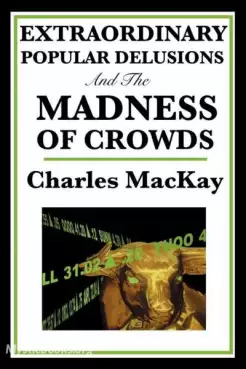
Memoirs of Extraordinary Popular Delusions and the Madness of Crowds, Volume 2 by Charles Mackay
"Men, it has been well said, think in herds; it will be seen that they go mad in herds, while they only recover their senses slowly, and one by one."...
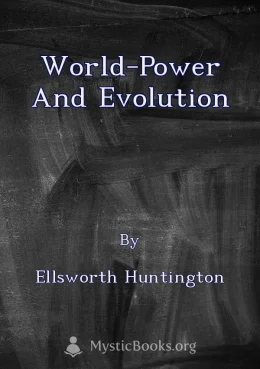
World-Power and Evolution by Ellsworth Huntington
Ellsworth Huntington's "World-Power and Evolution" delves into the intricate relationship between climate, civilization, and human progress. He argues...
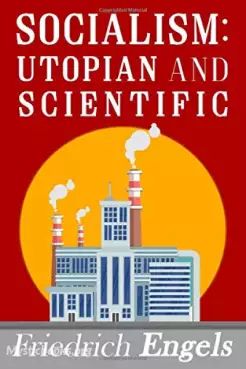
Socialism: Utopian and Scientific by Friedrich Engels
Socialism: Utopian and Scientific is a short book first published in 1880 by German-born socialist Friedrich Engels. The work was primarily extracted...

Law by Frederic Bastiat
In "The Law", Frédéric Bastiat provides a powerful critique of government intervention in the economy. He argues that the role of government should be...

Ideen zu einem Versuch, die Grenzen der Wirksamkeit des Staats zu bestimmen by Wilhelm von Humboldt
Ein klassicher Text des deutschen Liberalismus (Summary by redaer)

Men Like Gods by H. G. Wells
In H.G. Wells's *Men Like Gods*, a journalist named Mr. Barnstaple finds himself unexpectedly transported 3,000 years into the future. He arrives in a...
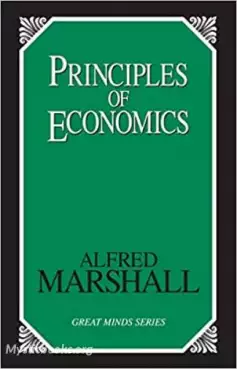
Principles of Economics, Book 1: Preliminary Survey by Alfred Marshall
Principles of Economics is a leading political economy or economics textbook of Alfred Marshall (1842–1924), first published in 1890. It ran into many...
Reviews for Ultimate Foundation of Economic Science
No reviews posted or approved, yet...